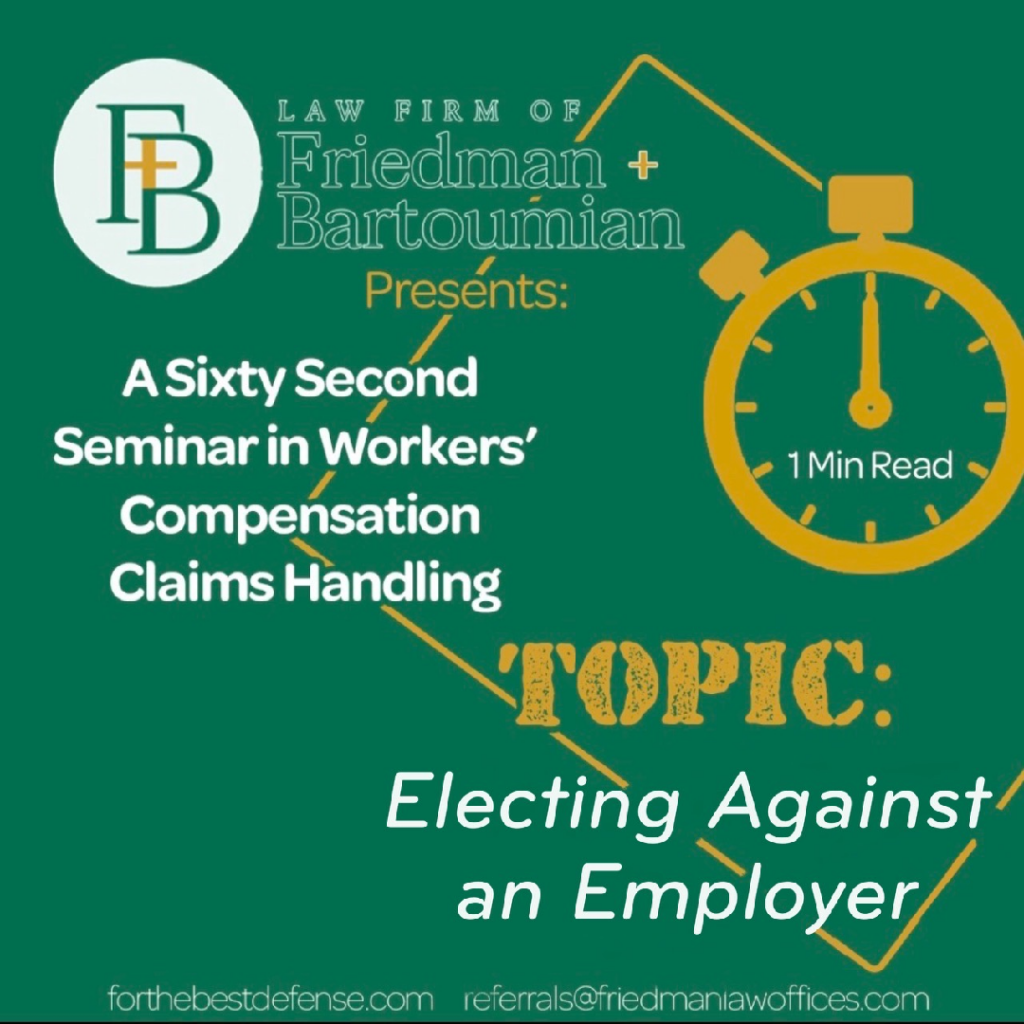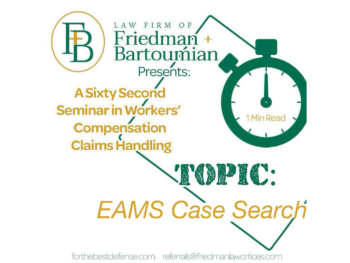
When dealing with a cumulative trauma claim involving multiple employers, an injured worker has the right to elect the employer they wish to proceed against. Alternatively, when multiple insurance companies provide coverage to a single employer over the time frame of a CT injury, the injured worker may elect one carrier as the primary defendant.
Today’s blog answers the six most prevalent questions asked in the context of a CT injury claim:
1. In a CT claim involving multiple employers and/or insurance companies, is the injured worker required to make an election?
Answer: No. An election is optional, not mandatory. However, if an election is made, the injured worker is prohibited from electing against the UEF, CIGA, or an uninsured employer, nor can the applicant elect against a co-defendant joined after the first WCAB hearing.
2. How is med/legal discovery handled when an election has been made?
Answer: Only the elected defendant may conduct med/legal discovery. Other defendants cannot participate in that process, nor may they participate at WCAB proceedings, other than as an observer.
3. How is med/legal discovery handled when an election is not made?
Answer: When an election is not made, every defendant may participate in med/legal discovery and obtain its own QME report. A defendant may also choose to waive obtaining a med/legal report and instead piggyback on a co-defendant’s highly favorable QME report. If applicant objects to undergoing multiple QME examinations involving different defendants, the injured worker may avoid this possibility by simply issuing an election.
4. Can an injured worker revoke a previous election in the middle of a case and select a new primary defendant to proceed against?
Answer: A change of election requires approval of the WCJ and must be for good cause.
5. Is an administrator’s compensability decision binding on all co-defendants?
There are two answers to this question depending on whether an election is made.
a. If a compensability decision is issued by an elected defendant, then any decision issued by that defendant is binding on all others, subject to challenge in the contribution phase of the claim.
b. On the other hand, if a compensability decision is issued by a defendant where an election has not been made, then the decision is non-binding on the others.
6. Can a workers’ compensation judge reject an election or alternatively appoint an employer to administer the claim?
Answer: Yes. The WCJ may reject an election against a defendant, especially when the exposure is de minimis. The WCJ may also appoint an administrator to handle the claim.
The rules and procedures involving CT claims can be confusing and burdensome at times. The Law Firm of Friedman + Bartoumian is available to our friends and clients to offer guidance and assistance as needed.


 Alternative Dispute Resolution (ADR): A Sixty-Second Seminar in Workers’ Compensation Claims Handling
Alternative Dispute Resolution (ADR): A Sixty-Second Seminar in Workers’ Compensation Claims Handling
Leave a Reply